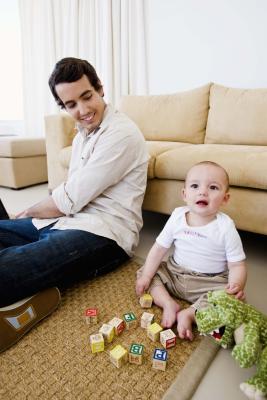Search Results for: development process
Baby Development Milestones
Now that your baby is born, you get to enjoy watching her reach several milestones over her first year of life. Baby development milestones include the big ones, such as walking for the first time and saying her first words, as well as smaller, but equally important ones, such as being able to lift her head on her own and recognizing who you are.
Baby Brain Development in the Womb
Your baby’s brain starts developing almost at the moment of conception, according to the Long Island Spectrum Center website. By the time you are three weeks pregnant, the developing embryo has formed a neural groove, which is the foundation for the brain structure. By the time your baby is born, her brain will have over 100 billion neurons.
Music Therapy for Children With Developmental Disabilities
Children with developmental disabilities may benefit from various types of interventions, including speech therapy, physical therapy, tutoring and academic or emotional counseling. Music therapy serves a specific role in that it fosters creativity and relaxation while also potentially boosting processing skills, fine motor skills and social skills. When considering music therapy, select a credentialed professional music therapist who has experience working with children with special needs.
Emotional Development in Babies
During their first several years of life, babies learn not only how to handle their own emotions, but also how to read emotions of others. This emotional development occurs naturally and slowly, as the child becomes more in tune with the world around him and aware of stimuli in his environment. As your child moves through this developmental process, he will become even more responsive to you and aware of the world in which he lives.
Auditory Processing Problems in Children
As kids learn about the world around them, they acquire much information through auditory means. Each time they hear you say a word or listen to you respond to a childish query, they add the piece of information to their memory banks. Children with auditory processing disorder, however, struggle to do this. While these children possess the power of hearing, they struggle to comprehend what they say. As KidsHealth reports, this challenge impacts 5 percent of all school-aged children. If you think that your child may be one of them, consider the symptoms and difficulties associated with this struggle.



